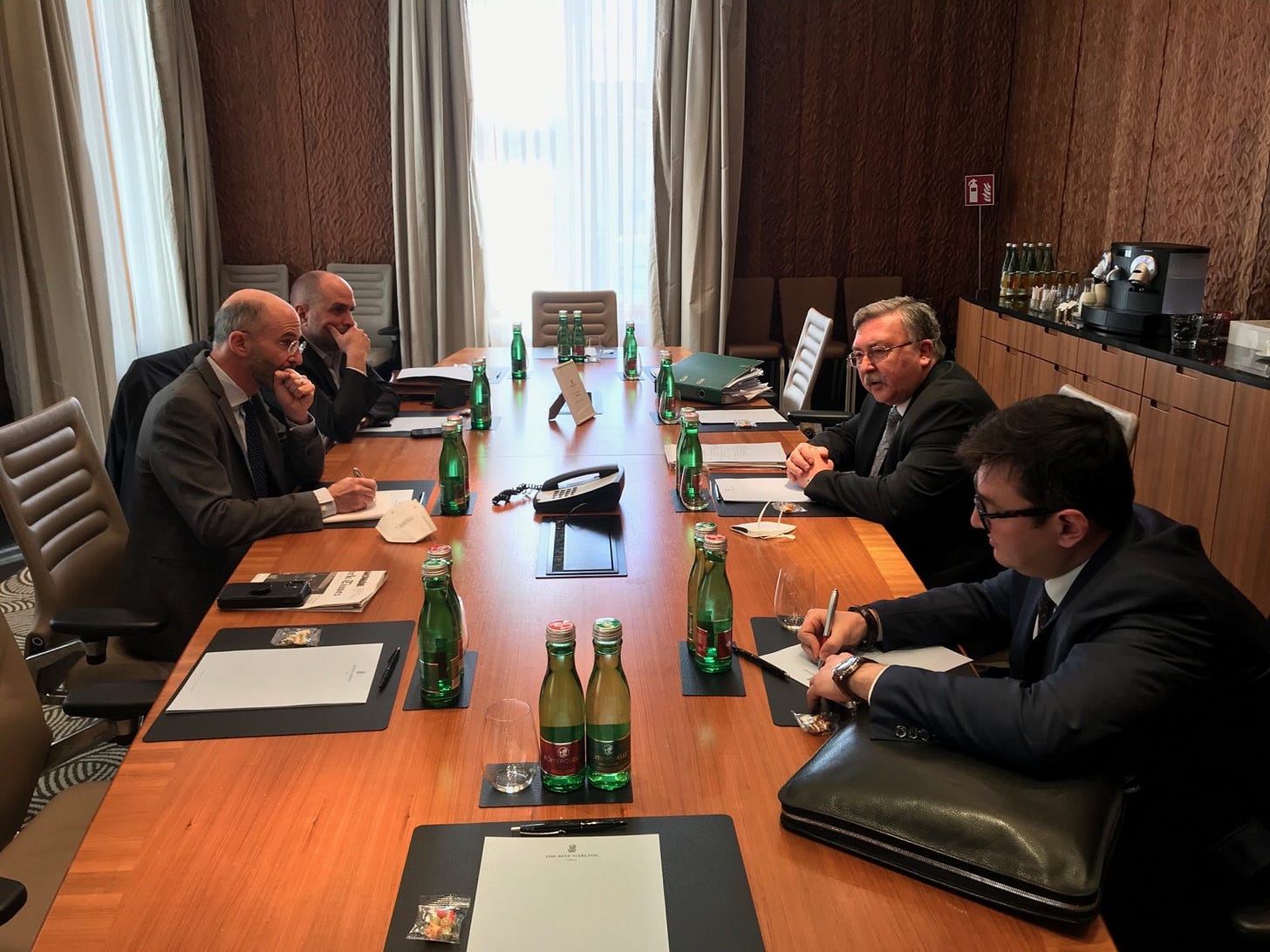WH official: “We are in the ballpark” for Iran deal, but U.S. prepared for either scenario
McGurk: “There’s a chance for a deal and there's also a pretty good chance there's not going to be a deal and I will tell you, we are prepared for either scenario.”

The top White House Middle East official said today “we are in the ballpark” of a possible deal to restore U.S. and Iranian full compliance with the Iran nuclear deal, but said he would not put odds on the outcome of the Vienna talks, and the United States was prepared either way.
“We're in the ballpark of a possible deal,” Brett McGurk, the National Security Council Middle East coordinator, said today (Jan. 27) in a virtual discussion with the Carnegie Connects podcast hosted by Aaron David Miller.
“There’s a chance for a deal and there's also a pretty good chance there's not going to be a deal and I will tell you, we are prepared for either scenario,” McGurk said.
“But…I'm not going to put odds on it,” he added.
Speaking of the current talks underway in Vienna, McGurk said we should know soon whether a deal can be reached on restoring the 2015 Iran nuclear pact, the Joint Comprehensive Plan of Action (JCPOA). Then US President Trump quit the deal in 2018, and Iran since 2019 has been progressively exceeding its nuclear limits to protest the lack of sanctions relief it was receiving.
“These talks will have a culmination point and we're actually reaching that culmination point pretty soon,” McGurk told Miller. “And we’re going to know very soon whether or not it is possible for the Iranians to turn return to compliance with the nuclear deal on terms that we and the international community can accept.”
McGurk, asked about the departure of deputy US Iran envoy Richard Nephew in December, praised Nephew as an “incredibly talented teammate,” said the talks were intense, and referred to a choice the U.S. government faced in early December after the new Iranian nuclear negotiating team under new Iranian President Ebrahim Raisi initially presented negotiating proposals that the P5+1 broadly considered un-serious and overreaching.
“When the Raisi team came back to talks in December, they walked in the door with [proposals]… walking back everything that had been done over the course of the summer, in the former administration of Rouhani,” McGurk said. “And we had a choice: do we just walk away from the table.”
“In fact, what happened was the Iranians met a united front,” he continued, referring to the parties negotiating on trying to revive the deal, which include, in addition to Iran and the United States, Britain, France, Germany, Russia, China, and the European Union. “The [Iranian currency] the rial collapsed…to an all-time low. And the Iranians came back a week later with completely different proposals.
“So you know, that in my view is pretty good diplomacy,” he said.
Nephew, as well as a senior advisor in the State Department arms control bureau Ariane Tabatabai, stepped down from the US Iran negotiating team largely over policy differences that had been building for some time, I reported this week.
Jarrett Blanc now serves as the deputy US Iran envoy, under US Iran envoy Rob Malley. Previously, Blanc and Nephew both served as deputy envoys.
**


